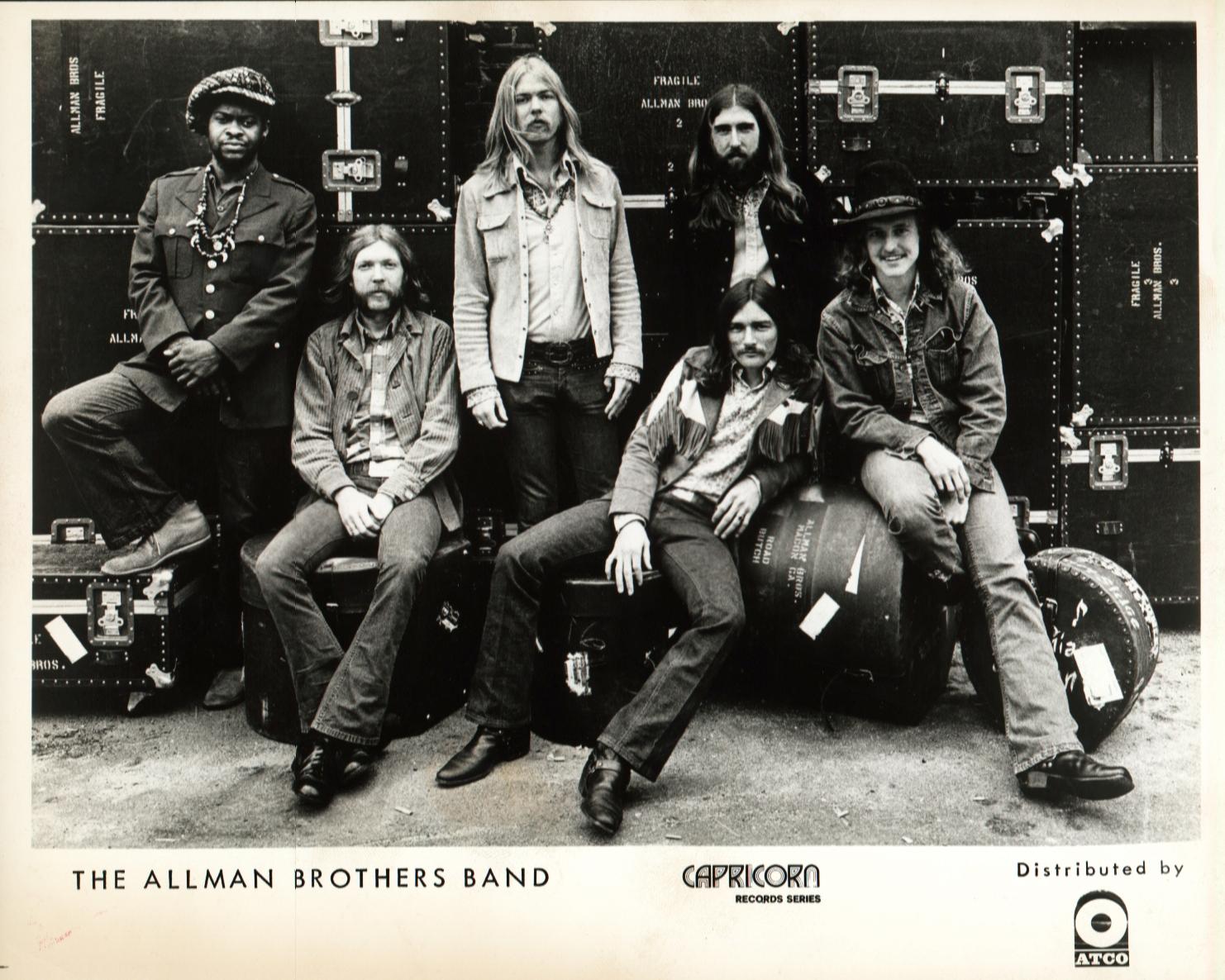The Allman Brothers Band is a name synonymous with Southern rock, blues, and improvisational music. Formed in 1969, this iconic band has left an indelible mark on the music industry, blending elements of rock, jazz, and blues into a unique sound that continues to resonate with fans old and new. The band's history is rich with creativity, tragedy, and triumph, setting the stage for a musical journey that has influenced countless artists and genres.
The Allman Brothers' sound is characterized by their dual guitar harmonies, soulful vocals, and extended jams that showcase the individual talents of each member. Their live performances, often exceeding the boundaries of traditional rock music, have created a fervent fan base that has remained loyal for decades. As we delve deeper into their history, we will explore the band's formation, key albums, and their lasting impact on the music world.
In this article, we will uncover the story of the Allman Brothers, from their early days to their evolution as a pioneering force in rock music. Along the way, we will address some frequently asked questions, examine their musical style, and highlight the band's most significant contributions to the industry. Whether you are a lifelong fan or just beginning to discover their music, there is much to learn about the Allman Brothers Band and their legacy.
What is the Biography of the Allman Brothers Band?
The Allman Brothers Band was formed in Macon, Georgia, in 1969 by brothers Duane and Gregg Allman, along with Dickey Betts, Berry Oakley, Butch Trucks, and Jai Johanny “Jaimoe” Johanson. Their music was heavily influenced by the blues, rock, and jazz music prevalent in the South during that time. The band's self-titled debut album was released in 1969, but it wasn’t until their live album "At Fillmore East" in 1971 that they gained widespread recognition.
| Band Member | Instrument | Birthdate | Death Date |
|---|---|---|---|
| Duane Allman | Lead Guitar | November 20, 1946 | October 29, 1971 |
| Gregg Allman | Vocals, Keyboards | December 8, 1947 | May 27, 2017 |
| Dickey Betts | Guitar | December 12, 1943 | Alive |
| Berry Oakley | Bass Guitar | April 4, 1948 | November 11, 1972 |
| Butch Trucks | Drums | May 11, 1947 | January 24, 2017 |
| Jaimoe | Drums, Percussion | July 8, 1944 | Alive |
What Are the Key Albums of the Allman Brothers?
The Allman Brothers Band released a series of albums that are considered classics in the rock genre. Some key albums include:
- Allman Brothers Band (1969) - Their debut album set the stage for their unique sound.
- Idlewild South (1970) - Showcased their growth as musicians and included fan favorites.
- At Fillmore East (1971) - A landmark live album that captured the essence of their performances.
- Bros. (1972) - Continued their tradition of blending rock with blues and jazz.
- Eat a Peach (1972) - Released after Duane Allman's death, this album reflects both sorrow and celebration.
How Did the Allman Brothers Influence Southern Rock?
The Allman Brothers Band is often credited with pioneering the Southern rock genre. Their unique blend of rock, blues, and country elements created a sound that resonated with audiences across the United States. They paved the way for other Southern rock bands, such as Lynyrd Skynyrd and ZZ Top, and their influence can still be heard in modern rock music today.
What is the Allman Brothers' Legacy?
The legacy of the Allman Brothers Band is profound. They have inspired generations of musicians and continue to influence artists in various genres. Their commitment to improvisation and live performance has set a standard for bands that followed. The Allman Brothers Band was inducted into the Rock and Roll Hall of Fame in 1995, solidifying their place in music history.
What Were Some Challenges Faced by the Allman Brothers?
Despite their success, the Allman Brothers faced numerous challenges throughout their career. Tragedy struck the band with the deaths of Duane Allman and Berry Oakley, both of whom died in motorcycle accidents. These losses profoundly affected the band and their music, leading to a shift in their creative direction. Additionally, battles with addiction and personal struggles have also impacted the band's dynamics over the years.
How Did the Allman Brothers Band Adapt Over Time?
Throughout their career, the Allman Brothers Band experienced numerous lineup changes and musical transformations. They reunited several times after disbanding, with varying degrees of success. Their ability to adapt to changing musical landscapes while staying true to their roots is a testament to their resilience and creativity. The band continued to tour and produce music until their final performance in 2014, leaving behind a rich catalog of work.
What is the Future of the Allman Brothers' Music?
The Allman Brothers Band's music continues to thrive through tribute bands, live recordings, and new generations discovering their albums. Their songs remain staples in the rock and blues genres, and their influence is evident in today's music. Festivals celebrating their legacy, such as the Allman Brothers Band's annual Peach Music Festival, ensure that their contributions to music will be celebrated for years to come.
Conclusion
The Allman Brothers Band is more than just a band; they are a cultural phenomenon that has influenced countless musicians and captivated fans around the world. Their unique sound, remarkable improvisational skills, and heartfelt songwriting have solidified their place in music history. As we continue to celebrate their legacy, the spirit of the Allman Brothers will undoubtedly live on in the hearts of music lovers everywhere.
Taylor Swift's Mom: The Woman Behind The Superstar
Unraveling The Mystery: Did Trump Have A Stroke?
Unveiling The Excitement: Alex Start X New 2024 Movie


